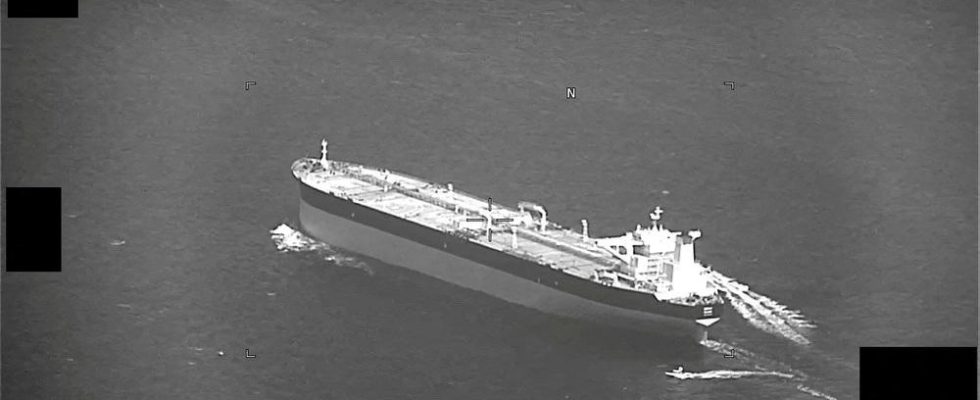A Panamanian tanker approached in the Strait of Hormuz by Iranian Revolutionary Guard motorboats. USNAVAL FORCES CENTRAL COMMAND / REUTERS
This new level of protection would come on top of the deployment, announced in mid-July by the Pentagon, of a warship and F-35 and F-16 fighter planes in the region of the Strait of Hormuz.
The United States intends to put soldiers on oil tankers transiting through the Gulf to dissuade Iran from seizing these vessels, an American official announced on Thursday (August 3rd). “Steps have been taken…to use security teams comprised of Marines and U.S. Navy personnel on merchant tankers transiting through and near the Strait of Hormuz to bolster the defenses of its vulnerable vessels »the source told AFP on condition of anonymity.
Iran seized or attempted to seize nearly 20 ships
To do this, an invitation is necessary as these ships are private but “we are preparing to do so if definitive agreements are reached”, continued the official. This new level of protection will be added to the deployment, announced in mid-July by the Pentagon, of a warship and F-35 and F-16 fighter planes in this area. According to the US military, Iran has seized or attempted to seize nearly 20 internationally flagged vessels in the region over the past two years.
The US Navy notably announced in early July that it opposed Iran’s seizure of two oil tankers in international waters off Oman. The Iranian army had also seized a tanker flying the flag of the Marshall Islands in late April in the Gulf of Oman bound for the United States, before seizing a week later a tanker flying the flag of Panama transiting through the Strait of Hormuz. Incidents have increased in the waters of the Gulf, a maritime zone crucial for the global transport of oil, since in 2018 the United States withdrew from the international agreement intended to limit the Iranian nuclear program, reimposing sanctions on the Islamic Republic targeting in particular its oil sector.

